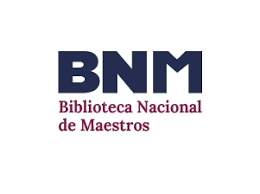DESAFÍOS EN EL APRENDIZAJE DE INGLÉS COMO LENGUA EXTRANJERA (ILE): CREENCIAS Y EMOCIONES DE ESTUDIANTES ADULTOS
DOI:
https://doi.org/10.63207/nt5d6s82Palabras clave:
Creencias – Emociones - Inglés como Lengua Extranjera – AdultosResumen
El aprendizaje de una lengua extranjera puede representar un desafío significativo para los estudiantes adultos. Este proceso exige de una comprensión profunda de los factores que intervienen en él. Estudios previos han demostrado que las creencias y emociones son factores afectivos intrínsecamente interconectados que influyen en la manera en la que los estudiantes abordan los aprendizajes. Reconociendo la relevancia de los factores afectivos en los procesos de enseñanza y aprendizaje de inglés como lengua extranjera (ILE), este estudio cualitativo explora las creencias, emociones y desafíos que enfrentan los estudiantes adultos al aprender inglés en un contexto de educación de adultos en la provincia de Jujuy, Argentina. A través de un cuestionario semiestructurado y entrevistas en profundidad, se identificaron las creencias y emociones relacionadas con sus procesos de aprendizaje. Los resultados mostraron que, aunque los estudiantes compartían una fuerte motivación por aprender inglés relacionada con mejores oportunidades profesionales y laborales, enfrentaban desafíos significativos en sus procesos de aprendizaje. Este estudio subraya la importancia de diseñar intervenciones pedagógicas más efectivas que aborden tanto los aspectos cognitivos como emocionales y que ayuden a los estudiantes adultos a enfrentar desafíos en sus procesos de aprendizaje.
Descargas
Publicado
Número
Sección
Licencia
Derechos de autor 2025 Verónica Mariela Piquer, María Celeste Gabriela Toconas

Esta obra está bajo una licencia internacional Creative Commons Atribución-NoComercial-CompartirIgual 4.0.
Política propuesta para revistas que ofrecen acceso abierto
Aquellos autores/as que tengan publicaciones con esta revista, aceptan los términos siguientes:- Los autores/as conservarán sus derechos de autor y garantizarán a la revista el derecho de primera publicación de su obra, el cuál estará simultáneamente sujeto a la Licencia de reconocimiento de Creative Commons CC BY-NC-SA 2.5 AR que permite a terceros compartir la obra siempre que se indique su autor y su primera publicación esta revista.
- Los autores/as podrán adoptar otros acuerdos de licencia no exclusiva de distribución de la versión de la obra publicada (p. ej.: depositarla en un archivo telemático institucional o publicarla en un volumen monográfico) siempre que se indique la publicación inicial en esta revista.
- Se permite y recomienda a los autores/as difundir su obra a través de Internet (p. ej.: en archivos telemáticos institucionales o en su página web) antes y durante el proceso de envío, lo cual puede producir intercambios interesantes y aumentar las citas de la obra publicada. (Véase El efecto del acceso abierto).
![Osolev, A. (s.f). Textura 120 [Fotografía]. En: https://www.flickr.com/photos/13796443@N05/6833625332](https://www2.hum.unrc.edu.ar/ojs/public/journals/8/cover_issue_309_es.png)











